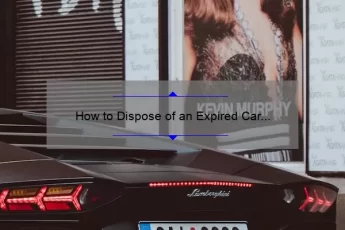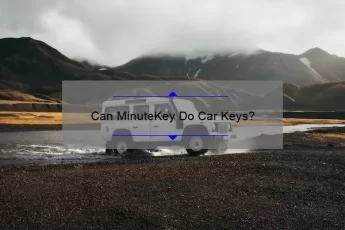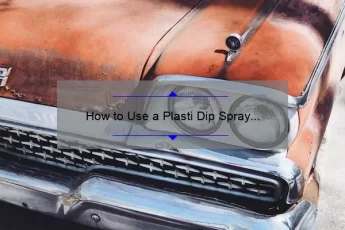It may seem like a good idea to throw old car batteries into the ocean to recharge electric eels, but it has many negative consequences. Not only will it pollute the water, but it can also release toxins that are harmful to humans and marine life. In addition, it is illegal and not environmentally friendly. Instead, you should take your old car batteries to a battery recycling facility. This way, you can do your part to keep the oceans clean.
Putting old car batteries in the ocean won’t recharge electric eels
We’ve all heard of these strange animals that live near power plants, and while we may be inclined to think that these batteries might power the animals, throwing old car batteries in the ocean won’t help them recharge. In fact, these animals can cause serious damage to our environment by releasing toxins that can harm plant and animal life. Thankfully, many companies offer battery recycling services to prevent these harmful substances from polluting our environment.
Scientists have been inspired by the electric eels for centuries. They developed an unorthodox battery that mimics the eel’s electrocytes. This battery consists of long rows of interconnected cells. When you press one of the blobs, the cells will light up and release the electrical charge.
The idea of throwing old car batteries into the ocean is an old joke, but it’s true. Electric eels use the waste energy from the batteries to recharge themselves. They produce electricity through specialized cells and organs called electrocytes. These cells are tiny, but they add up to create a large charge.
Batteries from cars can contain a variety of toxins, which can be harmful to wildlife. They can cause serious illnesses in fish and other animals if they ingest them. By using recycled car batteries, you can help prevent this problem. Instead of dumping your old batteries in the ocean, take them to an auto parts store or a battery recycling center.
The best way to dispose of your old car batteries is to dispose of them properly. Many people just throw them into the ocean, claiming that it will break down naturally, but this is not true. Besides damaging aquatic life, these batteries are also harmful to humans. The chemicals found in the batteries can be harmful to swimmers.
It’s environmentally terrible
Throwing car batteries into the ocean is extremely bad for the environment. The decomposing battery releases toxic chemicals that can be harmful to marine life. Furthermore, the toxic substances can affect the health of humans. Therefore, it is important to properly dispose of car batteries at a recycling center.
People throw car batteries into the ocean for a number of reasons, most notably to save money. This is not only environmentally horrible, but it is also illegal. Google searches for the question “Is throwing car batteries in the ocean environmentally terrible?” tended to promote a non-factual answer.
Even though most people own cars, it is important to consider the environment when disposing of these products. Household batteries can contain mercury and other toxic chemicals that can leak into ecosystems when disposed of. Ink cartridges are even more dangerous, because they contain toxic chemicals. By choosing not to throw your old ink cartridges into the ocean, you will be helping the environment as well.
It can lead to lead poisoning
Batteries are extremely harmful to marine life and can harm a wide variety of aquatic animals. Batteries contain lead and sulfuric acid, which are both toxic to aquatic creatures. They also corrode metal objects and can leak toxic chemicals into the water. To make matters worse, throwing batteries in the ocean is against the law.
Besides contaminating water, batteries can lead to lead poisoning, so you should never dispose of them in the ocean. These batteries are extremely toxic to animals and can cause serious health problems to humans. Also, they contribute to global warming due to the amount of lead in them. As a result, acidity levels have increased in the oceans, which can be harmful to marine life and coral reefs.
The main source of lead pollution is lead acid batteries. This toxic substance can cause lead poisoning in humans, particularly those with compromised immune systems. It is also known to cause kidney damage, cancer, and in some cases, even death. This chemical can also damage the reproductive system in animals.
The effects of lead poisoning in children are devastating, and the health consequences can be long-lasting. It has been linked to behavioral problems, cardiovascular problems, and even kidney damage. The cost of lead poisoning is estimated at $1 trillion in low and middle-income countries. Unfortunately, environmental safeguards do not exist in many parts of the world, making it impossible to keep lead levels from reaching harmful levels.
A standard car battery contains approximately 20 pounds of lead, which is extremely hazardous. Many car batteries are used for different applications, and their disposal can contaminate the ocean. Therefore, it is important to make sure to dispose of car batteries in a recycling center. Throwing them in the ocean can lead to lead poisoning, as the leaked lead can affect the health of marine life and the environment.
It’s illegal
Leaving a car battery in the ocean is against the law and can seriously affect marine life. The chemicals in a car battery are toxic, and even the smallest amount of lead can poison marine animals and their ecosystem. These pollutants can then enter the food chain and endanger human health. Therefore, the government has strict laws against disposing of these batteries in the ocean.
You can recycle or reuse car batteries, but you should not discard them in the ocean. Not only will this cause environmental damage, but it will also kill the local plants and wildlife. Additionally, you can get a fine if you’re caught. Fortunately, there are several methods for disposing of car batteries.
The best way to dispose of old car batteries is to take them to a recycling center. This will save money and reduce the environmental impact of the batteries. Batteries should never be thrown into the ocean unless they’ve been fully deactivated. Batteries can be a hazardous waste, and it’s illegal to throw them in the ocean.
However, many people have a misconception that it’s okay to dump car batteries into the ocean. While it may be tempting to throw away an old car battery, it’s not environmentally sound. These batteries can contaminate the water, harm marine life, and even harm humans. Instead of throwing the old car battery into the ocean, take it to a recycling center. Not only is it safe and environmentally friendly, but you can even sell it for a small profit at a local scrapyard or trade it in for a recycling discount.
The electric eel lives in rivers and streams in South America. If you’re not sure about the facts, you can also donate to organizations that are dedicated to preserving these endangered species. The electric eel population in the ocean can make a substantial difference for their survival.
In Pennsylvania, it’s illegal to dispose of old car batteries in lakes or rivers. These batteries contain lead and mercury, and can be a dangerous waste. To dispose of your old car batteries in the right way, contact a hazardous waste management company at least two weeks before you throw them away.








